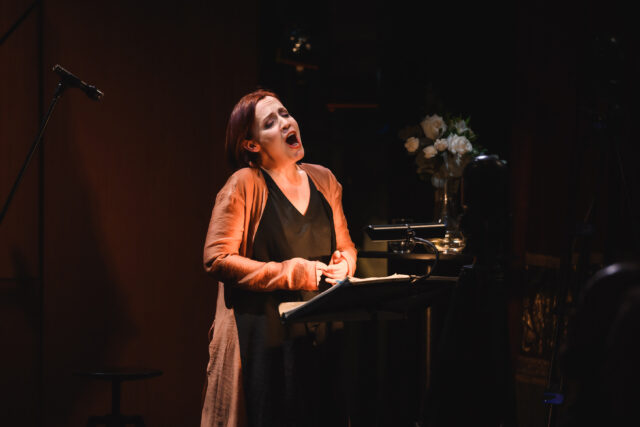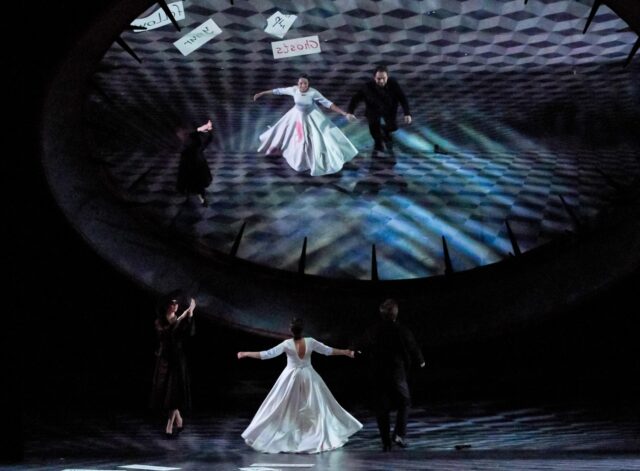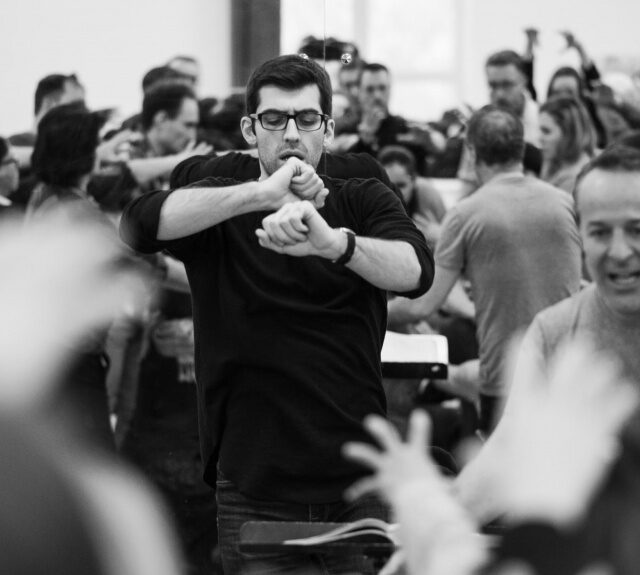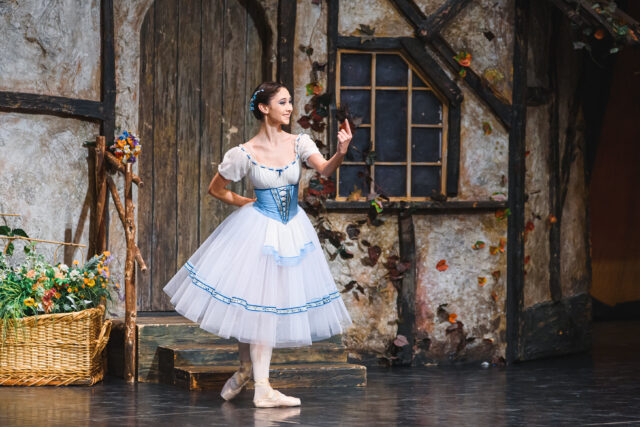The hushed silence of the auditorium is broken by the sound of sharp, military-style footsteps ringing out from backstage, heralding the imminent appearance of the conductor. Clad all in black, and in punk-rocker boots, the 41-year-old Teodor Currentzis looks no more than 25. And having made his way to the podium, he immerses himself in Stravinsky. This performance of Le Sacre du printemps is the highlight of the Ruhrtriennale, home of the avant-garde and a paradise for the artists who gather for this 40-day festival staged in the former industrial sites of North Rhine-Westphalia, now transformed into performance and exhibition spaces. A pale, thin figure, Currentzis lets himself be drawn into the music, mirroring it with his gestures and movements – one minute subdued, the next frenetic – as he conducts his MusicAeterna ensemble. More Nijinsky than Bernstein, more Pete Doherty than von Karajan. «I have a mission. I want to save classical music.» So he pronounces, in rich baritonal tones that contrast with his fragile physique, after emerging from a trance-like state induced by the young audience’s rapturous half-hour-long ovation. For the Greek conductor who, after a period of activism at the Novosibirsk Opera, is now working in the shadow of the Urals as Artistic Director of the Perm State Opera and Ballet Theatre, might this be Mission Impossible? Maybe not: the Currentzis method has impressed and intrigued the classical music world. «We’ve created a commune – free artists with a different credo who are battling to change the direction in which music is moving,» he explains. «We don’t work to a strict timetable, and often rehearse by candlelight and over a glass of wine.» The world (of music) is not what he dreamt it would be as a student. «There are two options: I either distance myself from the universe which revolves around music and which sickens me, or I create my own niche in which to feed the sacred flame. If there’s too much music in the air, we can’t really appreciate it any more. Imagine the world was ruled by a dictator who banned music for five years. What do you think would happen? We’d all be listening to pirate radio in secret, after dark. Music would re-emerge from the silence, with new strength and power.»
Currentzis is a radical, comparable to the great anarchists Bakunin and Kropotkin. Far from dreaming of appearing at La Scala, Covent Gardenor the Met, he’d raze them to the ground. «Anyone who loves music must want to destroy the system that controls it and only shares it with a tiny number of devotees. The great institutions are doomed to die. It’s the same with rock and jazz – the best things are coming out of the indie market, the mainstream is on its last legs. MTV is defunct, the «supermarkets of sounds» are on the skids. Real music-lovers are listening to Sigur Rós, not Lady Gaga. There’s far too much talk today about how we have to get young people into the opera house. But that has to happen in the right way too; it’s not enough to rely on the latest superstars (good-looking, photogenic, gym-honed opera singers). We’re talking to young people who have their own views on the world, who are reacting against the system, who’ll be opera-goers for the rest of their lives.»
As a boy in Greece, Currentzis dreamt of becoming a composer, like Mahler, his idol, «who wrote music only in his summer holidays». Back then, poetry was his measuring stick for art. He was captivated by the surrealists, especially Artaud, and devoured the poems of Georg Trakl, Baudelaire, Lautréamont and Mallarmé. «Musically, my points of reference aren’t the dinosaurs – von Karajan and Bernstein – but Gieseking, Cortot, Glenn Gould, Harnoncourt.» And when he talks about potential collaborations with other artists, he goes straight to the extremists of the species: Peter Sellars, Bob Wilson, Lars von Trier and Romeo Castellucci. «In Permwe’ve smashed the sense of routine that’s killing art. We want to strike a blow at the heart of a system that programmes operas and engages artists five years in advance. It wasn’t like that in Caruso’s day.» Currentzis dreams not of realism in opera, but of a kind of «ritual theatre» that would preserve it like the Gospels,”the sacred sung word», exalting the mystery of the libretto and preserving the legend intact. This isn’t just idle talk. The economic crisis is spreading, opera companies are closing, and it’s artists like him who may be able to play a part in the recovery. Sony Music tracked him down in Permand offered him a long-term, carte blanche contract. «I won’t accept compromises, I want all the time and resources necessary, no hype and no pressure. And they told me that’s why they were there. I’ve already recorded works by Rameau, as well as Le nozze di Figaro and Così fan tutte. And we’ve got Le Sacre, Don Giovanni and Beethoven’s symphonies and Messa solenne lined up for the near future.»
As this performance of Le Sacre comes to an end, the audience explodes into applause. Currentzis and the orchestra come back to the stage and again commune with the spirits of Stravinsky, Diaghilev and Nijinsky, this time in The Riot of Spring by young Russian composer Dmitri Kourliandski. As the strings build up a crescendo, the players leave the stage one by one and join the audience. Violins, violas and cellos are passed to youngsters who, with a bare minimum of instruction, keep the sound levels up over the electronic background noise. The brilliant leader, 27-year-old Andrey Baranov fromSt Petersburg, gets extremely up close and personal with the 20-year-old girl to whom he’s given his violin. The ensuing musical chaos makes perfect sense – it’s lyrical, creative and full of life. By the end, some of the instruments are in pieces, and the kids scramble for souvenirs to take away with them (no barrier here between Oistrakh and Hendrix). Heiner Goebbels, eminent Artistic Director of the RuhrTriennale, is ecstatic as he leaves the auditorium: «I didn’t think a conductor’s charisma could do so much». But Currentzis is already looking ahead. «I want to become a more passionate, more enlightened artist. Romanticism still exists, but it depends on us. Do we want to read the story of our lives, or become its heroes? I’ve made my choice, and I haven’t gone for the easiest option.»
Giuseppe Videtti, Bochum | La Repubblica



